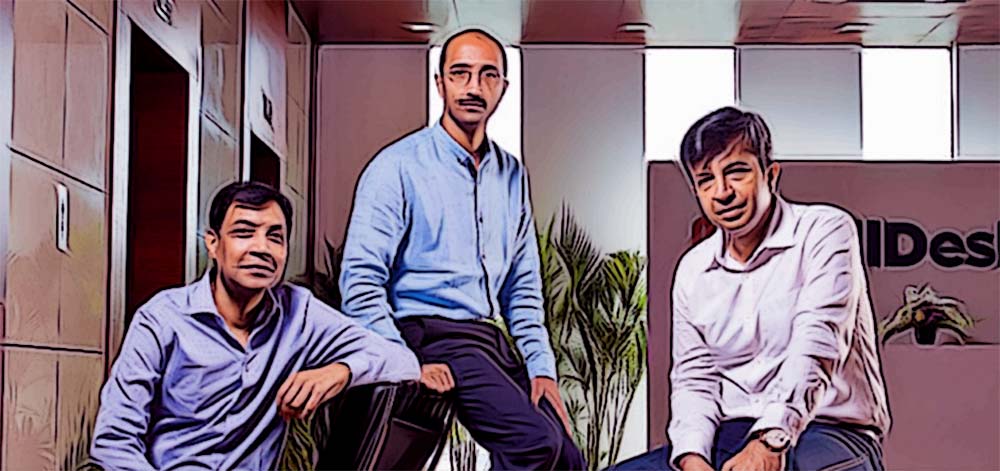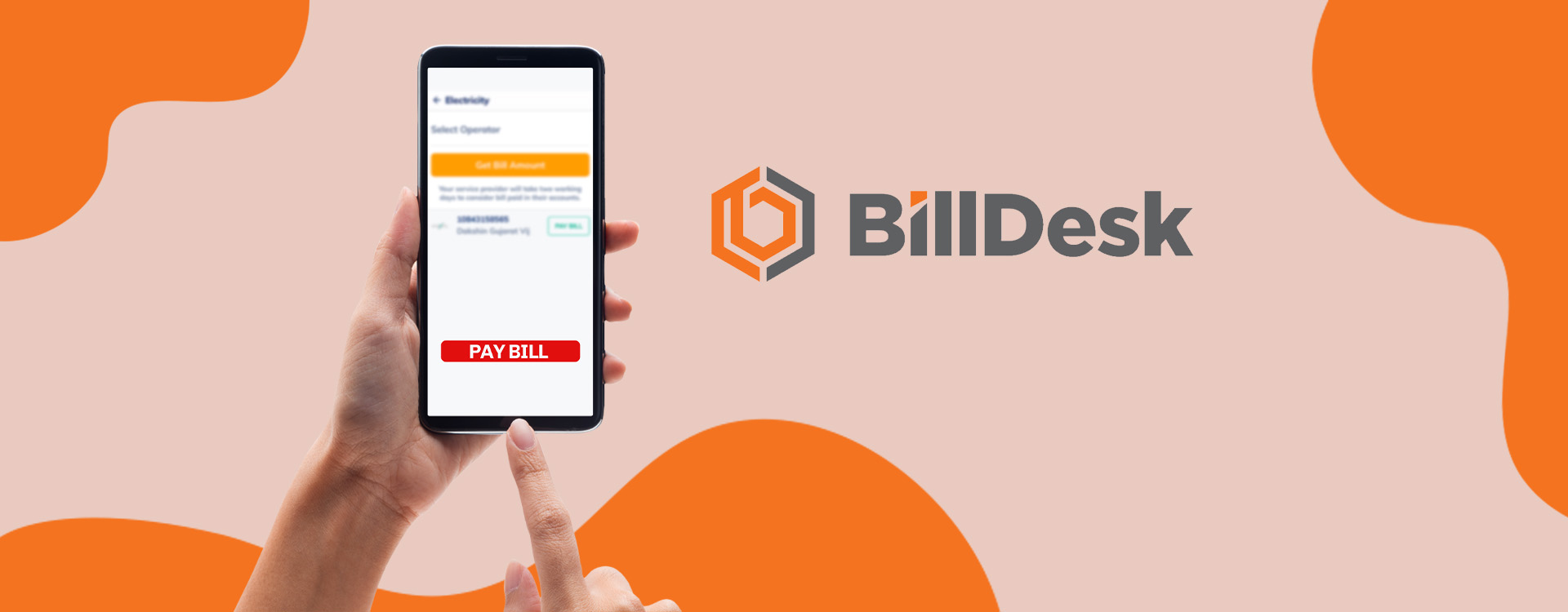Back in the early 2000s, a businessman had to make the effort of going to the bank to withdraw hard cash while making a transaction. The banking service was still in its developing phase and their facilities were not efficient and fast. To overcome this barrier, a newly established business industry – the Financial Technology (Fintech) witnessed the emergence of a private company – BillDesk in the early 2000s.
The plans of the company promised immediate and convenient monetary transactions for financial institutes in order to make their cash flow more lenient. This means that this new product was intended to open a faster and safer medium of flow of money between any two or more business organisations, other than cash.
What is BillDesk?
BillDesk is one of the leading payment gateway companies in the market with an estimated worth of $1 Billion (estimated in 2015). The company, considered a pioneer of the Fintech industry, had set its foot in the market in the early 2000s. This private ownership was founded by three accountant friends working for the American firm- Arthur Anderson. The three friends, M.N. Srinivasu, Ajay Kaushal and Kartik Ganapathy left their jobs at their previous firm in order to implement their knowledge for an Indian customer base.
This platform was introduced to reduce the labour of physically going out and paying various household or phone bills and the product very well turned out to be a success when they made this facility available to the public. This essentially targeted Indian business owners who were still using outdated methods of paper bills and check writing systems, to switch to an easier method of payment.
BillDesk through the decades
When the three co-founders came together with this idea back in 2000, the idea was remotely known to people. Nobody could trust the internet on a greater scale with money or banking activities as people were not familiar with the inner workings of online payments gateways. BillDesk received its first payment from SIDBI Venture capital and Ltd. (a private company) and Bank of Baroda (public sector bank). This marked the beginning of a tremendous uptick. Public perception shifted in favour of BillDesk as associations with banks and big names in the private sector meant a growth in trust as well.
With times changing, other banks and financial institutions also started adopting online banking services and the usage of online payment gateway started becoming a trend. The popularity rose with the revenue and BillDesk became one of the very first payment gateways in India.
BillDesk and its owners proved their worth by selling a unique and useful product. They provided the facility of paying off electricity bills, credit card bills and bookings, ISP charges, phone bill payments and other banking facilities when no other payment gateway company did. The way it works is; for every transaction to be made, the user gets a confirmation slip on registered number or email ID. They also provide the bill of the transaction on the spot. The whole concept may seem very casual in today’s age but this was the beginning of the online payment technology back then and it was considered as an essential asset.
There was not much competition in the market against BillDesk for at least 10 years. The platform ran very smoothly without sharing their customer base with any of the competitors. Organising a business that involves so much cash, government and bank backing is a huge undertaking. The company worked very well under all the guidelines and helped balance the economic structure with its convenience and efficiency.
‘‘
BillDesk was introduced to reduce the labour of physically going out and paying various household or phone bills and the product very well turned out to be a success when they made this facility available to the public.
The Plan for Glory and the Rise to Success
The idea behind the introduction of BillDesk was to reduce the financial gap between the two business parties by creating a medium of payment suitable for both. Business transactions aside, various other personal expenditures could be paid off using this facility.
BillDesk provided the solution to multiple problems like- storing bills on the internet, reminding about monthly bill cycles, providing flexibility of payment hours and many more. BillDesk initiated transactions with lesser processing charges which were earlier heavily implemented over any online transaction. This was possible through every mode of payment possible; credit card, debit card or UPI. Any savings or current bank account holder could have access to the product at ease.
The organisation gives back-end support and foundation to numerous small time firms like retail based business sites. It empowers these organisations to acknowledge online installments through BillDesk’s installment entryway. This made micro payments that much easier.
The whole system proved to be very beneficial for the bankers and large business owners in the longer run as the profits were marginalised due to the cut of processing charges and the frequency of business deals increased as the method of payment was simplified.
BillDesk is now widely used in India as well as abroad by various telecom, insurance, financial-services and e-commerce organisations and now has many online/mobile payment portals (or apps) used for online banking.
In India, post demonetisation in 2016, people tended to go cashless and BillDesk helped with this situation by providing the facility of mobile banking/UPI transfers. The company had activated its services mostly for the convenience of its huge customer-base.
The company was dealing in people’s money indirectly and that too, on a massive scale. This raised a few arguments about the security of the process and needed the company to publicly announce its safety protocols beforehand.
Money and Trust Go Hand-in-Hand
The payment gateway portal has always been consistent and attained customer satisfaction over time. BillDesk ensures Secure Sockets Layer Encryption (SSLE) technology as the safe passage of the portal’s transaction. To sum this up; the user’s information that is available on the internet via BillDesk is totally encrypted or coded. This provides a sense of safety to the user when doing payments online. BillDesk was one of the very first online payment companies to publish their security plans and built trust around the market by being transparent.
The work rate of the enterprise during the initial years of its establishment was immense and had good profit margins. This was all possible because of the trust gathered by working with major clients like SBI and Bank of Baroda.
Working with government banks and high-end financial institutions gave BillDesk a lot of credibility and added to the clout which was much needed, given that it was such an early concept platform for its time.
When things started coming together for the entrepreneurs, the whole business idea turned out to be life changing for them. Since their establishment, the company has come a long way.
‘‘
At times like the post-demonetisation era (2016), digital payments were normalised, as going cashless became the new trend.
BillDesk: The Source of Fortune
In 2006, the State Bank of India put in an investment worth $7.5 billion USD jointly with Clearstone Venture Partners. The joint ventures were in business with BillDesk for a considerable amount of time and still continue to thrive together as partners. US based private equity firm General Atlantic and Temasek invested a total sum of Rs. 620 crores in the company in 2015 thus, sky-rocketing the valuation of the firm to $583.67 million USD back in 2015.
The firm’s net worth is estimated to be between $2 to $5 billion (USD) making it a member of the esteemed unicorn club. The company managed to provide a reasonable growth in the percentage of profits (consolidated) in the year 2017-18. The charts rose from Rs. 138 crores of net profit at the start of the year to Rs. 149 crores at the end of the financial year. The revenue from these consolidated profits also increased in this financial year increasing from Rs. 772 crores (approximately) at the start of the financial year to Rs. 943.7 crores at the end of the financial year. This just indicates what a golden year 2017-18 was for BillDesk and its founders.
The firm enjoyed sole profits for years as they lacked competition. With the change of time, this privilege was taken away from BillDesk and a few new firms rose up with similar business ideals and concepts. Let’s learn about some of BillDesk’s competitors back in their prime years.

The End of BillDesk’s Monopoly
Since the beginning of the last decade, the Fintech industry experienced a massive change with technological development. It also saw the increase in the number of companies with similar projects much akin to BillDesk.
BillDesk faced stiff competition from other major companies like RazorPay, CC Avenue, Oxigen and Citrus Payment Solutions. These companies grew in the early 2010s and significantly altered the landscape by bringing the option of various payment gateway portals to customers. The race for the profits tightened which resulted in an upgrade of the product from a security aspect.
The owners even wanted to sell off the whole business in July, 2020 because of the immense amount of competition faced by industries in the financial sector. Being a private company, it was obvious that they would be facing more and harder competition in the future.
RazorPay was one of the toughest competitor platforms that BillDesk faced in that decade. It had a similar model as to BillDesk but was more modern working and “techno-savvy”. RazorPay uses only a single code line on the website or custom button to initiate any financial transaction making it quicker than BillDesk, yet despite this BillDesk still stands to this day.
BillDesk and Its Future
As mentioned earlier, the owners of the enterprise wanted to put their business on sale for various reasons. This did not mean that the platform was coming to an end. The demand for such a gateway is always on the rise.
As of 2015, India’s online payment market was estimated to be worth $1 billion USD with a growth rate of 50 per cent annually. This indicated that people started going cashless and putting more of their money and trust in digital payments. This revolutionary change brought about in the users’ mindsets did not happen overnight. This was the repercussion of the trust built around the people by BillDesk over the years and a result as to how they managed to provide elite quality of service with such consistency.
In the same year, 70 per cent of the total online transactions were done through BillDesk providing a financial backbone to the economy of the country as a medium of instant and distant payments or transactions. At times like the post-demonetisation era (2016), digital payments were normalised, as going cashless became the new trend. This marked a new trend where everyday consumers started understanding the importance of online payments and banking.
It will not be wrong to say that BillDesk managed to bring about a revolutionary change in the financial sector. They managed to provide people with something they needed but never knew they did.
For more inspiring stories, check out our Inspire Section!





Very lucid. Fluent and flawless. Informative and Interesting.